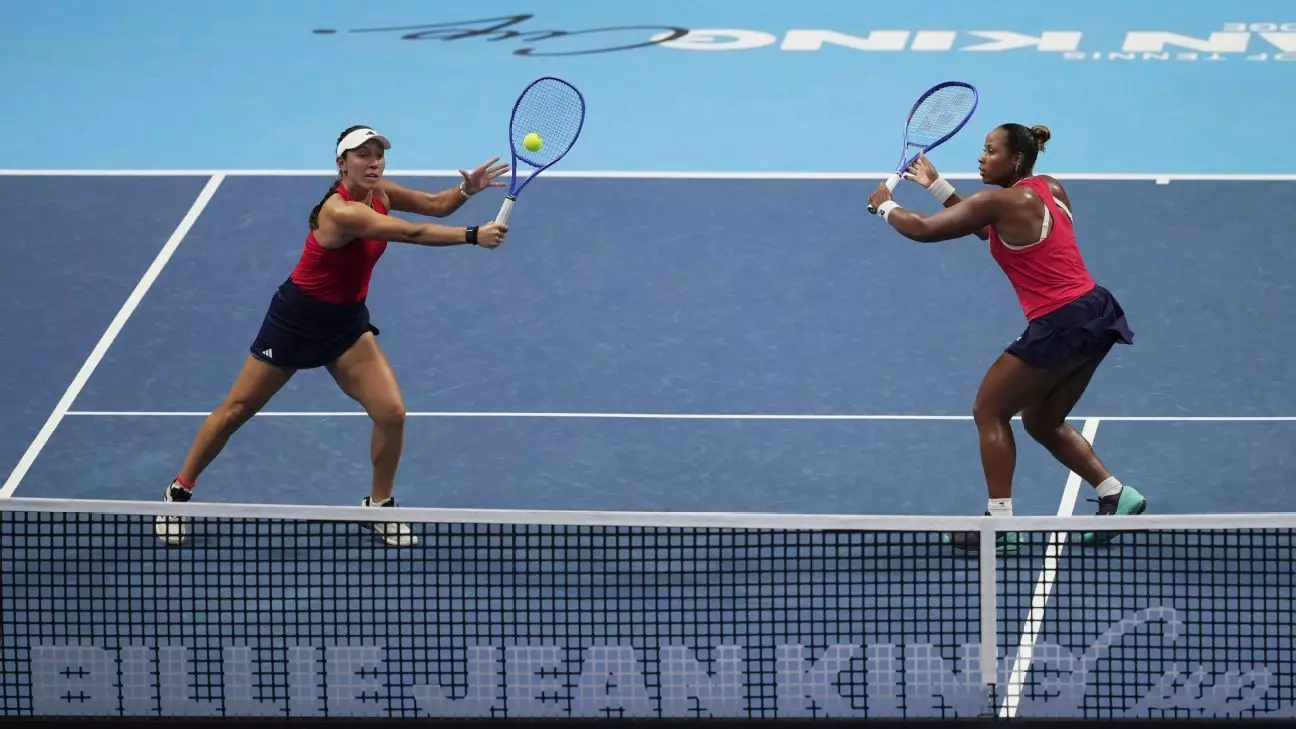The United States women’s tennis team demonstrated remarkable resilience and tactical finesse in their recent Billie Jean King Cup match, ultimately securing a spot in the semifinals for the first time since 2021. Facing formidable opponents from Kazakhstan, the American squad showed that perseverance and teamwork can triumph over individual setbacks. The victory was not merely a matter of skill but also of mental toughness, especially during the decisive doubles match where Jessica Pegula and Taylor Townsend showcased their complementary strengths. Their ability to adapt under pressure and execute in critical moments highlights the importance of strategic pairing and composure on the court.
Pegula, recovering from her disappointing loss to Elena Rybakina earlier, refused to let her previous setback define her performance. Instead, she leaned into her experience, teaming up with Townsend—a doubles powerhouse—to clinch the victory. Townsend’s dominant first set combined with Pegula’s determination in the second set tiebreak exemplifies how synergy and individual resilience can turn the tide. Their efforts symbolize the broader narrative that success in team tennis hinges not solely on singles prowess but equally on doubles chemistry and mental fortitude.
Emerging Talents and Key Moments Shift the Momentum
The path to this victory was marked by intense individual battles that showcased the rising depth of American talent. Emma Navarro’s comeback against Yulia Putintseva is a testament to the unpredictable nature of tennis and the importance of mental focus in high-stakes situations. Navarro’s ability to save match points and secure victory in a fiercely contested tiebreak underscores the perseverance that is often unseen outside the spotlight. Her win injects youthful energy into the team, hinting at a promising future for U.S. women’s tennis.
Meanwhile, Rybakina’s dominant win over Pegula reflected the unpredictable edges in top-level competition. Although Pegula faced defeat, her willingness to confront a top-10 opponent and learn from that experience plays into her growth trajectory. Her comments about cultural differences earlier in the week added an unintended controversy, yet her subsequent focus on the game showcased her dedication. Townsend’s role in the doubles point and her commanding first set set the tone, proving that exceptional doubles play remains a critical component of team tennis success.
Broader Implications and the Road Ahead
This victory is more than just a step forward; it signifies a potential shift in American women’s tennis, emphasizing depth and resilience beyond the top-ranked stars. The upcoming semifinal against Britain will be another test of these qualities, especially considering how Britain secured their spot with commanding straight-set wins. The contrast between the tactical grit of the US and Britain and the formidable challenge posed by European teams underscores the global competitiveness of the sport.
The historical dominance of the US, with 18 titles, looms large, but their last victory in 2017 suggests a need for renewed confidence and strategic innovation. Their journey through the quarterfinals reveals that success in team competitions depends on mental toughness, versatility, and the ability to perform under pressure—traits that may well position the U.S. to reclaim their former glory. The Billie Jean King Cup, once called the Fed Cup, continues to serve as a battleground where the resilience and strategic brilliance of nations are laid bare, and the United States are showing that they are back on the path to greatness—more committed and strategically astute than ever before.


Leave a Reply